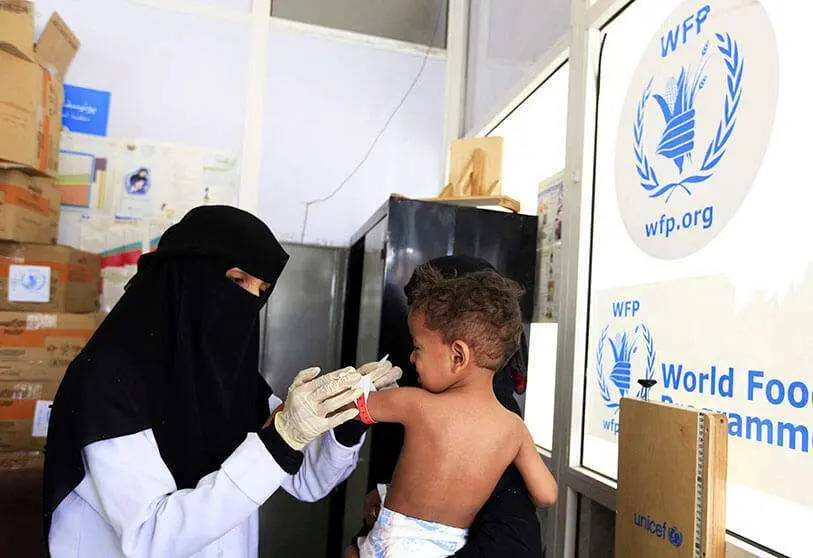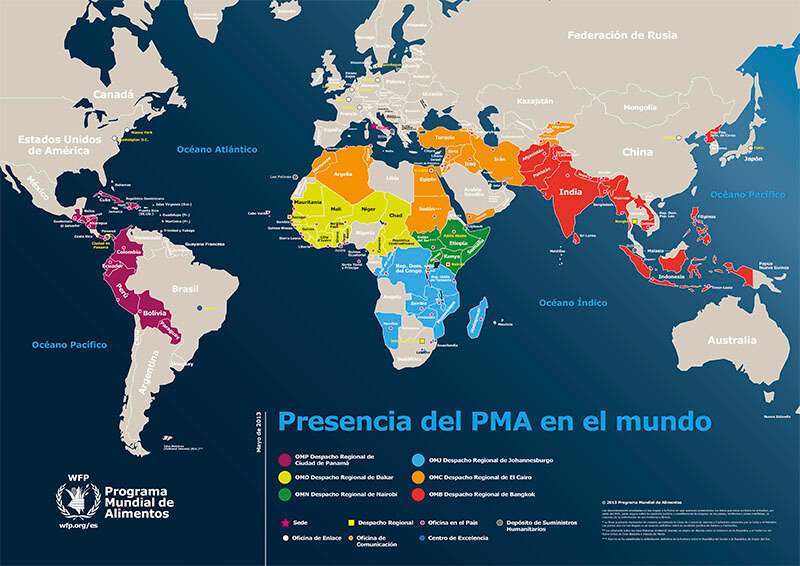World Food Programme wins Nobel Peace Prize

The World Food Programme (WFP), the humanitarian organization dedicated to fighting world hunger, today won the Nobel Peace Prize, an award that recognizes the support it provides each year to 86.7 million people in 83 countries.
Founded in 1961 and based in Rome, this United Nations (UN) programme aims primarily to distribute food to support development projects and humanitarian cooperation with long-term refugees and displaced persons.
WFP distributes 15 billion rations each year at an estimated cost of US$0.31 (per ration), making a significant contribution to improving nutrition and building resilience in the communities it works with.
This award is dedicated to the people who work in the programme and the values they represent. It has a staff of over 17,000 people in all the countries where it delivers food and assistance on an ongoing basis.
WFP's work in recent months has been critical in helping the communities most affected by the coronavirus pandemic continue to receive assistance. The humanitarian organization's objectives have shifted to "preventing this health emergency from becoming a food security crisis".
This requires not only facilities to work on the emergency, but also people to plan for the future of the post-pandemic situation. Indeed, WFP Chief Economist Arif Husain recently noted that WFP "can help channel the ongoing support it receives from its donors, helping societies and families recover more quickly from the pandemic.
Last March, WFP launched an appeal for US$350 million to support aviation, shipping, warehousing, transport and engineering services in areas affected by the pandemic.

WFP is often the first agency to arrive on the scene of an emergency to provide food assistance to victims of war, earthquakes, floods, droughts, hurricanes and other natural disasters.
The protocol when the emergency is resolved is to support the populations in these areas to recover their lives and livelihoods that have been previously affected.
WFP has also been implementing school feeding programmes globally for more than 50 years. In addition to delivering food to some 16 million children in 60 countries annually, especially in hard-to-reach areas.
WFP's strategic plan 2017-2021 is currently aligned with the UN Agenda 2030 for Sustainable Development and focuses primarily on two objectives: the total elimination of hunger and the revitalization of global partnerships to implement these sustainable development goals.
Its history dates back to 1961, when it was initially conceived as a three-year pilot programme. A year later, in 1962, three events in the world marked WFP's development: 12,000 people died in an earthquake that shook Iran and caused extensive damage; a typhoon devastated Thailand; and Algeria, which had gained its independence, began repatriating and feeding its more than five million war refugees.
WFP provided immediate food assistance and its contribution was so indispensable that it has continued to help around the world ever since.
WFP works closely with the Food and Agriculture Organization of the United Nations (FAO) and the International Fund for Agricultural Development (IFAD). But WFP also partners with more than 1,000 national and international NGOs to provide food assistance and tackle the root causes of hunger.
It is supported solely by funds from voluntary donations: more than 60 governments support humanitarian and development projects, but it also receives contributions from corporations and private donors. In 2018 it raised US$7.2 billion (about '6102.28 million at current exchange rates) and bought 3.6 million tonnes of food in the same year.








